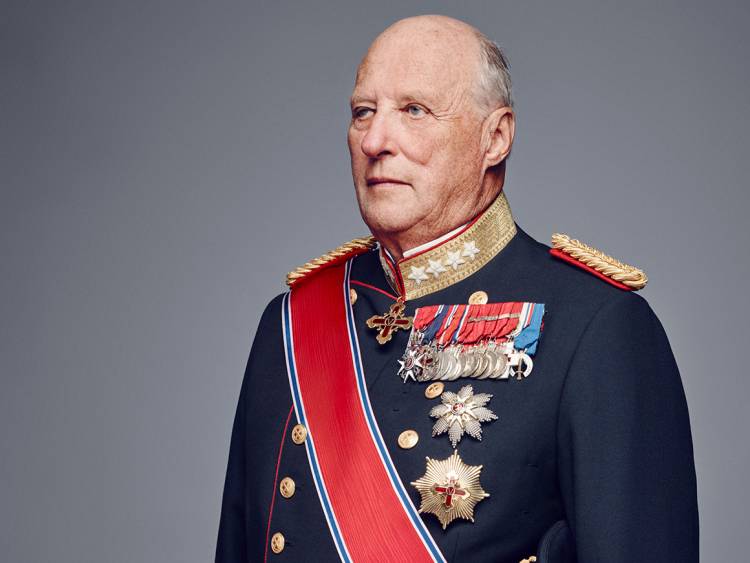The Royal House of Norway - English

Formal audiences
His Majesty King Harald granted three new ambassadors formal audience at the Royal Palace Thursday. They represented Iran, Colombia and Paraguay.
All newly-appointed ambassadors must present their credentials (in the form of Letters of Credence) to the King at a formal audience. When the King has accepted them the ambassador is formally accredited to Norway.
Photo: His Majesty The King receives the new Ambassador of the Republic of Paraguay, His Excellency Mr Juan Ernesto Snead Amarilla. Photo: Gorm Kallestad / NTB
Current Activities

Welcoming the Restauration to the US
His Royal Highness Crown Prince Haakon, along with a couple of thousand attendees, welcomed the sloop Restauration to New York, exactly 200 years after the vessel carrying Norwegian emigrants arrived in the United States. In 1825, they crossed the Atlantic in search of a new and better life. This voyage is regarded as the beginning of organised emigration from Norway.

Met with Governor Walz in Minnesota
Minnesota is one of the states in the United States where a large proportion of the population has Norwegian ancestry. His Royal Highness Crown Prince Haakon is therefore also visiting this state and its largest metropolitan area, Minneapolis–Saint Paul, during his trip to the United States to mark the 200th anniversary of Norwegian emigration to the US.

200 years of Norwegian-American history
This year marks the 200th anniversary of the organised emigration from Norway to the United States. In commemoration of this, His Royal Highness Crown Prince Haakon is visiting the states of Iowa, Minnesota, and New York to celebrate Norwegian-American history, alongside Norway's Minister of Foreign Affairs and Minister of Trade and Industry.



